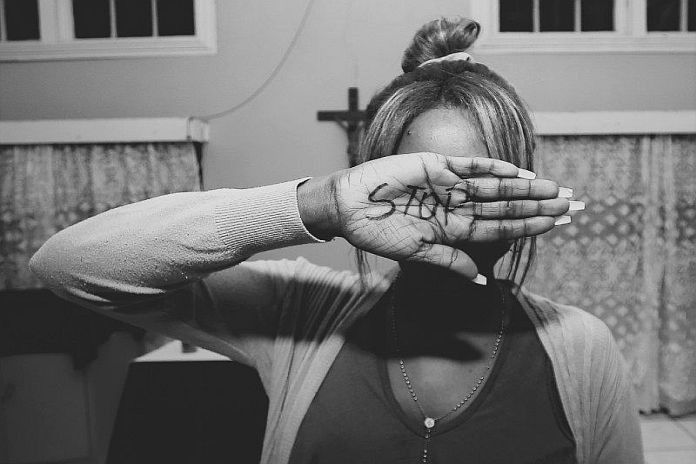PORT OF SPAIN, Trinidad – As Manuela Molina* stepped from a pirogue onto a beach in Trinidad, panic turned to relief. The journey from Venezuela had been dangerous but she had felt compelled to make it. For years, the economic situation in her homeland made it difficult to earn a living and that became impossible in 2019 when her children’s father abandoned them.
Living in Trinidad had never been Manuela’s dream but now the island offered the chance of a new beginning and a better life for her family. Little did the mother of three suspect her hope would be so fleeting.
Minutes after her arrival, Manuela, who had been promised a decent job, was forced into a van by Trinidadian men and driven to a secret location where other women were held.
“Some people kept us in captivity for about a month. They forced us to work (as sexual workers),” Manuela says. “In trying to escape, I ended up getting arrested. I was in prison.”
Manuela is a survivor of human trafficking, traded and exploited for profit. The International Organization for Migration (IOM) advocated on Manuela’s behalf to free her from prison.
Even after regaining her freedom, Manuela struggled to shake off the trauma.
“This experience has been the worst of my life,” she says softly. “I got help to see a psychologist through IOM and had to focus on what was important because I have to provide for my children. I don’t want my children to have to take the same risks and end up in a similar situation as I did.”
Human trafficking disproportionately affects women and girls. The 2020 UNODC Global Report on Trafficking in Persons – the latest available – stated that 72 per cent of the globally detected trafficking victims are girls under the age of 18, and 50 per cent of victims are trafficked for sexual exploitation.
Many of the factors that increase women’s vulnerability to gender-based violence – poverty, gender discrimination, inadequate access to education, conflict and natural disasters – are also push factors for women leaving home in search of opportunities. This puts them at risk of falling prey to traffickers who often use violence and schemes – such as fake jobs and educational opportunities – to deceive victims.
Migrant women, trafficked from neighbouring South American countries, have found themselves in Trinidad and Tobago being sexually, physically, and mentally abused, and in some cases, imprisoned.
“While the government has demonstrated its commitment to address the issue, there should be an increase in its efforts to investigate, prosecute and, importantly, convict traffickers,” says Jewel Ali, Head of the IOM Office in Trinidad and Tobago. “IOM will continue to cooperate with its partners, learn, apply and share best practices, as well as be innovative in its solutions to provide protection and assistance to victims of trafficking.”
IOM is also encouraging victims to reach out for help. It says many victims of trafficking suffer in silence because they have not been formally identified.
“Most of the victims are foreigners and, because of that, they face language and cultural barriers, as well as other issues, such as lack of documentation that becomes an obstacle to access psychological services,” Ali says.
The COVID-19 pandemic has introduced new layers of vulnerability, according to Manuela. “There’s a need for more work opportunities and more access to psychological support because a lot of women are in the same situation and need help psychologically to work through all these difficulties in order to survive,” she says.
Agencies such as IOM play a crucial role in helping struggling migrants get by, Manuela says. The Organization offers a variety of support to survivors of trafficking, including accommodation, emergency assistance, medical health services, vocational training and psychosocial support.
“The salaries we earn as migrants are often less than minimum wage, so the cost of living is difficult to meet,” Manuela says. “The support makes a difference because if I get rent or food support, I can use the remaining money for my children.” They have now joined her in Trinidad.
The traffickers, who subjected Manuela to physical and mental abuse, remain free. Manuela wants them to know that she survived.
“How could you feel good in your heart, knowing you are living life off the suffering of other women?” she asks. “I want to be able to study and do more with my life. To have real possibilities. For my children, I want them to become good people and to have a better life.”
*To protect her identity, the survivor’s name was changed, and some details of her story were omitted.





